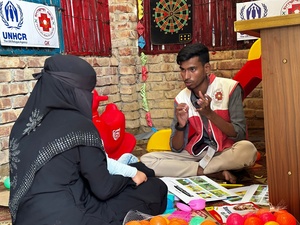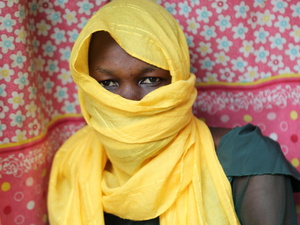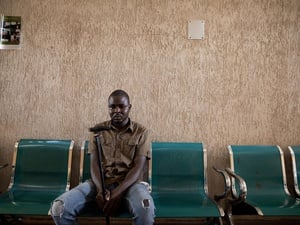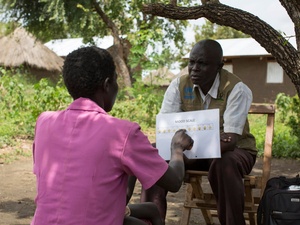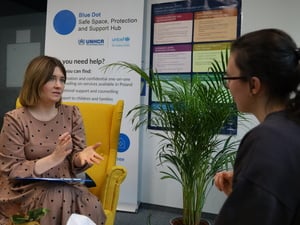Funding cuts threaten support for displaced women affected by violence in Mozambique
Funding cuts threaten support for displaced women affected by violence in Mozambique

Psychologist Ancila Niyubuntu shares a joyful moment with Viaze Abudo, one of the women she has supported, outside her home in Cabo Delgado.
In the coastal town of Pemba in northern Mozambique, women and girls in colourful sarongs gather beneath the shade of mango trees to escape the mid-morning heat. Seated on woven mats, some silently sketch while others laugh softly together. Moving among them is psychologist Ancila Niyubuntu, guiding this session for survivors of sexual assault, abuse or domestic violence with a calm and steady presence.
The women are gathered outside one of a number of safe spaces supported by UNHCR, the UN Refugee Agency, in northern Mozambique’s Cabo Delgado province, where violence has marked many women’s lives in unimaginable ways.
Some were held hostage by the non-state armed groups. Others have endured sexual violence from intimate partners, relatives, or neighbours. The emotional toll of these experiences is immense.
“People expect us to go back to normal, but they don’t know what we carry inside,” says Muaziza Amade, a displaced woman who was held hostage by a non-state armed group for almost two years.
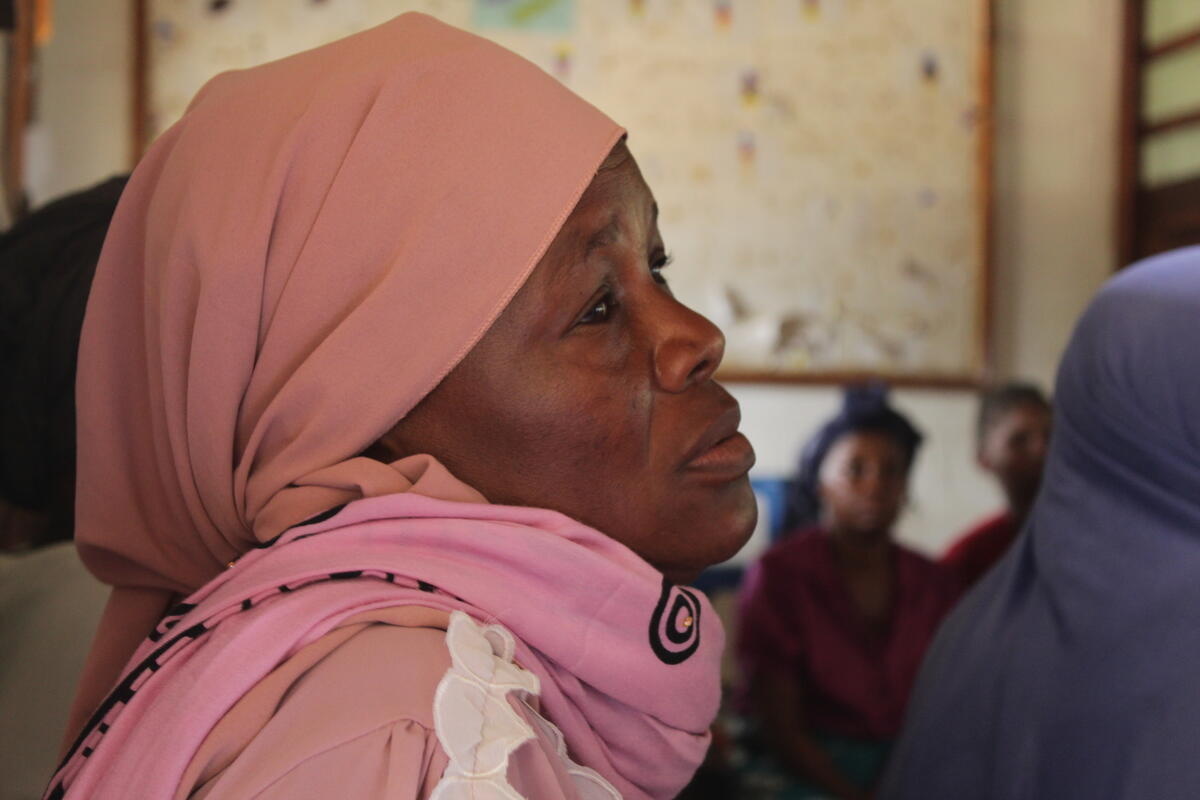
Muaziza Amade carries the emotional scars of being held hostage for nearly two years, but has found strength and purpose through individual counseling with Ancila.
A convergence of crises
Northern Mozambique has also been battered by extreme weather, including cyclones and droughts. In March, Cyclone Jude made landfall in Nampula Province – the third major cyclone to hit Mozambique in three months. It destroyed over 200,000 homes, including in areas where people forced to flee the conflict had sought refuge and were trying to rebuild their lives.
In total, 1.3 million people have been uprooted by the armed conflict or extreme weather. They include over 25,000 forced to flee following a surge in violence in the past few weeks. At the same time, a severe shortage of funding is limiting the ability of humanitarian organizations, including UNHCR, to respond to the growing needs of those displaced by violence and extreme weather.
Women have borne the brunt of this convergence of crises. They face heightened risks of violence, the loss of their livelihoods, and major barriers accessing protection and health services.
The UNHCR-supported safe spaces provide a place where they can access psychological support, connect with others, and begin to heal. For many women, it is the only place where they feel heard. Ancila has seen how transformative this support can be for those struggling to recover from violence and trauma.
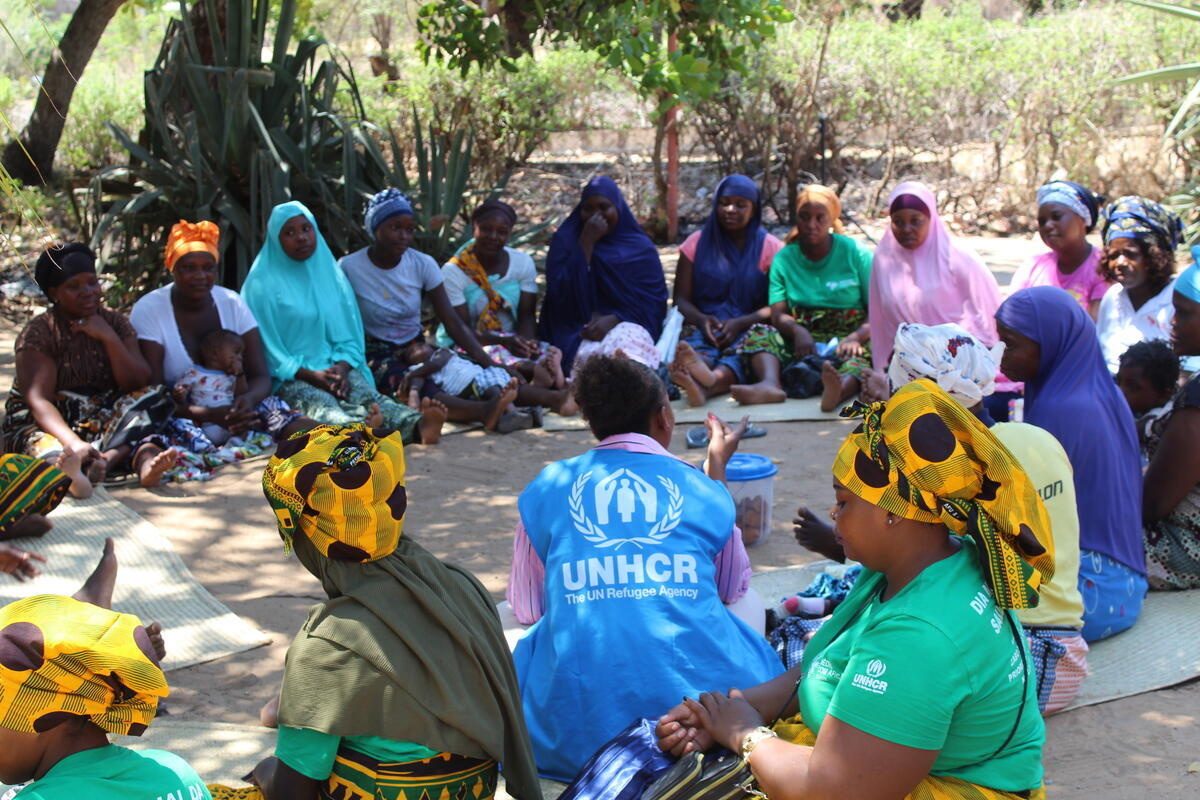
A group of displaced women sit together for a psychological support session facilitated by a team from UNHCR and its partners.
“Sometimes they arrive and don’t speak at all,” she says. “But slowly, when they see they are not alone, they begin to share. That moment of connection – it’s powerful. That’s when healing begins.”
Through individual sessions with Ancila, Muaziza found comfort and validation. She began speaking up, reconnecting with others, and eventually helped guide other women. “Sometimes, healing starts when someone just listens,” she says.
Shrinking budgets
Eleven safe spaces for women remain open in 2025, down from 15 in 2024. As conflict spreads to new areas, and more displaced women are facing violence, shrinking budgets are putting a strain on other UNHCR-supported services critical to women’s recovery, such as legal aid, help with replacing documentation, health services, shelter and livelihood support.
Of the 300,000 internally displaced women and girls in need of such services in northern Mozambique this year, UNHCR can reach only 40,000. Among refugees, just 3,000 will be supported out of a target of 10,000, leaving most survivors without access to life-saving help.
Ancila relied on humanitarian support herself when she arrived in Mozambique as a refugee from Burundi in 1998. Life in exile was not easy. She had to adapt to living in a refugee settlement and learn a new language.
“I used to sit in the class and not understand a word,” she recalls. “But I promised myself I would not give up.” After years of uncertainty and adjustment, she earned a psychology degree, determined to help others facing the same fear, confusion and displacement she had known.
Today, she teaches internally displaced women and those from surrounding host communities coping mechanisms to manage fear, grief and loss. The focus is not only on healing but also on rebuilding lives through literacy classes and skills training.
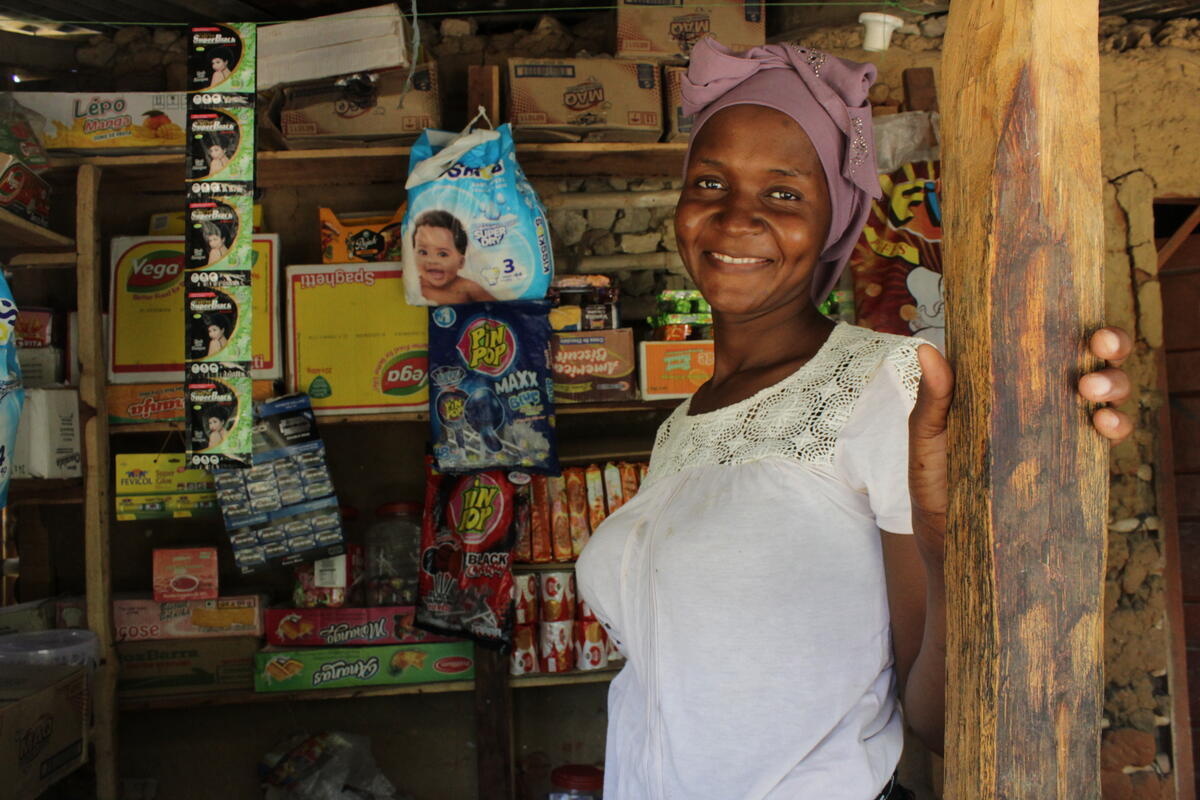
Viaze Abudo smiles from the doorway of her small shop in Cabo Delgado, which she started after completing a livelihoods training course.
Viaze Abudo, a young mother from Macomia, witnessed her best friend being tortured by members of an armed group. She fled her home, only to be abandoned by her husband while pregnant. Traumatized and alone, she found solace in one of UNHCR's safe spaces, where she began attending sessions led by Ancila and received business and entrepreneurship training. Now she runs a small shop from her home, selling oil, vegetables and sweets.
“These women are not just survivors, they are leaders, mothers, entrepreneurs and change-makers,” says Karen Matimbe, a protection officer with UNHCR. “When we invest in their healing and empowerment, we are strengthening entire communities.”
Growing needs
Ancila also leads sessions with men, encouraging conversations about accountability and respect. Domestic violence often escalates following displacement, when men, having lost their roles as breadwinners and protectors, face unemployment, trauma and instability. Forced displacement frequently leads to a sharp increase in intimate partner violence. According to a report by UNHCR, four in five sexual violence incidents in Mozambique are committed by someone the survivor knows, and half of survivors experience repeated violence throughout their lives.
UNHCR works to prevent further violence against women by supporting community volunteers to spread awareness, raise safety concerns and develop their own prevention and mitigation strategies.
With the need for such services already far exceeding the available resources, the crisis in aid funding is placing vital mental health, protection services and prevention work at risk. As new displacement occurs and more women and girls seek help, the gap between needs and resources is widening. Without additional funding, many survivors will be left without the support they need to begin healing.
“Mental health is not something you fix overnight. There are no quick wins,” notes Karen Matimbe. “We know what to do to help these women build a better future. With more financial support, we can scale it up and reach those still waiting to be heard.”




